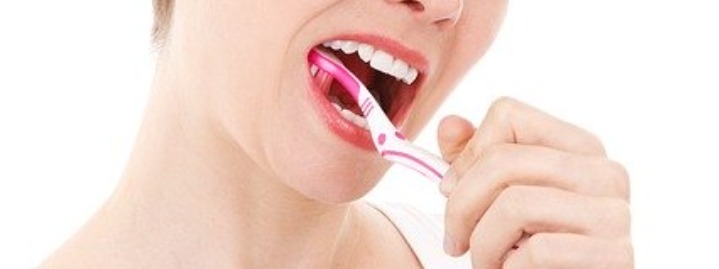There are many different parts to practicing good oral hygiene; visiting your dentist regularly, brushing and flossing multiple times per day, and even maintaining a proper diet will all affect your overall dental health. Too many people suffer from gum disease, gingivitis, cavities, and worn enamel. This can all be prevented with the proper care of our gums, teeth, and bones! So, what is preventive care? It is the act of keeping your mouth healthy to avoid decayed, damaged, or lost teeth in the future.
Preventive dentistry is critical to maintain your overall oral health and to keep your teeth strong and stable. Preventive dentistry includes a multitude of different things; brushing and flossing your teeth, professional cleanings and check-ups, and oral cancer screenings. Why do we brush our teeth? Brushing your teeth helps to remove daily bacteria which is why it’s recommended twice per day (or three times if your teeth are more prone to plaque and tartar). If bacteria is left on your teeth for an extended period of time, you could end up with an infection that could lead to gum disease.
Contents
Proper Brushing Technique
Often times, people think they can brush quickly on the surface of their teeth and they’ve succeeded to get rid of all the bacteria. Unfortunately, this isn’t the case. Being thorough in your tooth brushing really pays off – so be sure and spend the entire two minutes getting every nook and cranny in your mouth that you can reach.
It’s important to be sure and cover every visible surface of your tooth in your mouth and don’t forget to include your tongue! This means, behind your teeth (on the backs), in between your teeth, in front of your teeth, on top of your teeth (the gum line), and the chewing surfaces of your teeth. Brushing along the gum line will also ensure that all of the bacteria is away from your gum tissue – further preventing infection.
How Often Should I Brush My Teeth?
If you only break out your toothbrush every once in a while, it’s definitely time for a visit to your dentist.
You should brush and floss your teeth around the same time. Usually, it’s easiest to brush them first thing in the morning and last thing before bed. This is also best for your dental health because you are brushing away the built-up bacteria from overnight in the morning, and preventing more bacteria from growing by ensuring there isn’t any food leftover from the day in your mouth before bed.
It is recommended, strongly, that your teeth are brushed twice per day. Most people brush their teeth after they wake up and before they go to bed – both of these times are ideal. In the mornings, you’re getting rid of any bacteria that grew overnight and at night, you’re getting rid of anything you’ve eaten throughout the day so it won’t grow more bacteria.
If you’re more susceptible to plaque and tartar, your dentist may recommend that you brush a third time throughout the day (usually after lunch).
Care About Your Smile? Don’t Miss Daily Brushing and Flossing!
It’s all-too-easy, when traveling, or simply after a long night of swimming or other fun in the sun, to forget to brush and floss one’s teeth. Unfortunately, skipping out on daily dental hygiene allows the plaque bacteria in your mouth to feed on the sugars and starches you’ve consumed during the day, leading to acidity which can begin to erode the teeth’s enamel, eventually leading to cavities and potentially gum disease. You can help avoid these and other oral health threats, though, by simply taking the few minutes necessary to brush your teeth, morning and night, and to floss at least once a day! Combined, these simple acts can help greatly reduce your risk of developing cavities and even gum disease!
Yes; Dental Hygiene Is Really That Important
You might be surprised to learn just how many adults fail to regularly brush and floss their teeth. Studies from the American Dental Association indicate that as many as 30 percent forget or simply fail to brush their teeth twice daily, and only 30 percent of adults even claim they floss every day.
Fortunately you can beat these odds, and better your smile’s health, with these simple tips:
- If you have a hard time remembering to brush your teeth, consider setting daily reminders through your phone or on your alarm. You could also ask a spouse, child or other loved one to serve as your accountability partner, until you’ve developed the habit for yourself!
- For kids, include brushing and flossing on a daily chore chart. Consider offering non-sugary treats, as incentives for completing these important tasks!
- If the problem is that you never seem to have enough time, when getting ready in the morning, start setting your alarm five minutes earlier. This makes a miniscule change to your sleeping schedule, but an important one for your oral health.
- It takes only two minutes to properly brush your teeth. You can even use a timer or song to indicate when you’ve brushed for long enough! And with plenty of practice, flossing should only take a minute or two as well.
How Often Should I Visit My Dentist?
There are certain circumstances where your dentist may want to see you more regularly than annually or biannually. In cases such as; pregnancy or extra plaque or tartar build-up (among other conditions) they will want to see you to monitor your dental health closely. With pregnancy, the change in hormones can make your gums more prone to bacteria and infection, they are likely to bleed more often when you brush or floss.

